10 Best Herbal Lotions For Frozen Shoulder
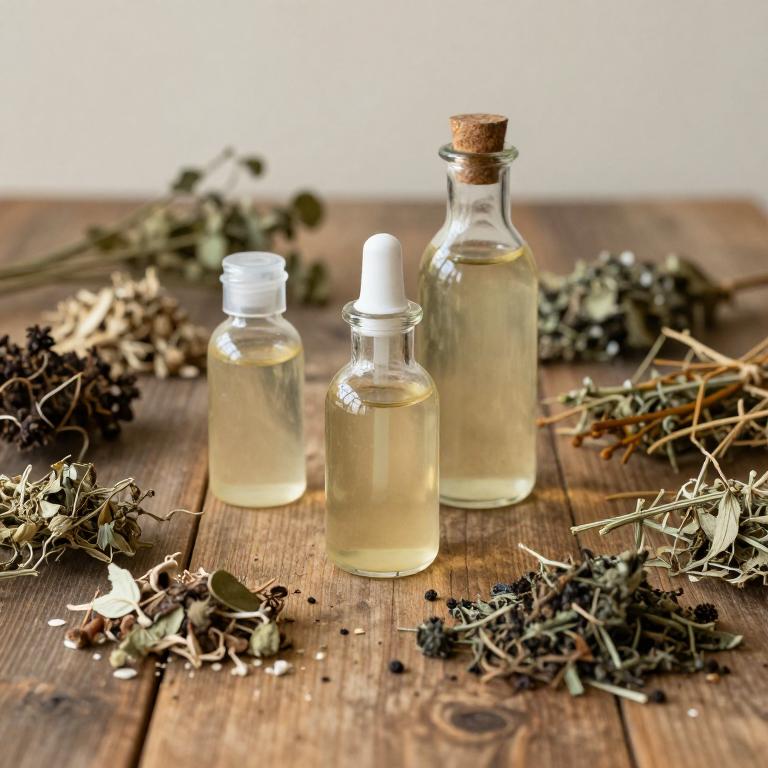
Herbal lotions are natural remedies that can be beneficial for individuals suffering from frozen shoulder, as they often contain anti-inflammatory and soothing ingredients like arnica, eucalyptus, and ginger.
These lotions help to reduce stiffness and pain by improving blood circulation and promoting muscle relaxation. Applying a warm herbal lotion can also enhance its effectiveness by penetrating the skin more deeply and easing joint discomfort. Many people prefer herbal lotions over synthetic alternatives due to their gentle nature and fewer side effects.
However, it is important to consult a healthcare professional before using any herbal treatment, especially if you have existing skin conditions or allergies.
Table of Contents
- 1. Field horsetail (Equisetum arvense)
- 2. Salvia (Salvia officinalis)
- 3. Dog rose (Rosa canina)
- 4. St. john's wort (Hypericum perforatum)
- 5. Stinging nettle (Urtica dioica)
- 6. Chaste tree (Vitex agnus-castus)
- 7. Common grape (Vitis vinifera)
- 8. Yarrow (Achillea millefolium)
- 9. Ginger (Zingiber officinale)
- 10. Turmeric (Curcuma longa)
1. Field horsetail (Equisetum arvense)

Equisetum arvense, commonly known as field horsetail, is a traditional herbal remedy that has been used for its high concentration of silica and other bioactive compounds.
When incorporated into herbal lotions, it is believed to help reduce inflammation and improve circulation, which can be beneficial for individuals suffering from frozen shoulder. These lotions often combine Equisetum arvense with other anti-inflammatory herbs like willow bark or ginger to enhance their therapeutic effects. Applying such a lotion topically to the affected area may help alleviate stiffness and promote mobility in the shoulder joint.
However, it is important to consult with a healthcare professional before using these remedies, especially if you have underlying health conditions or are taking medications.
2. Salvia (Salvia officinalis)
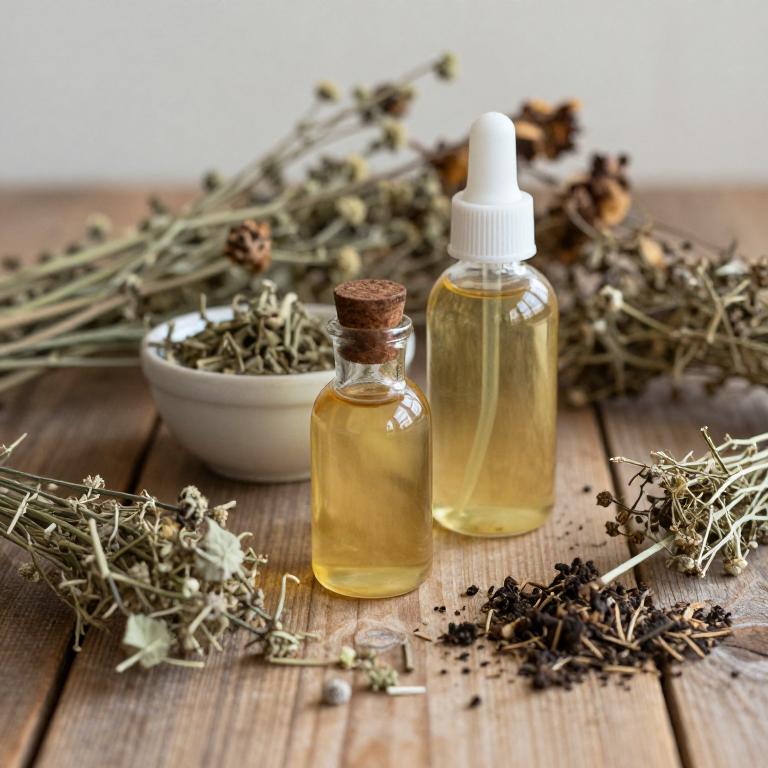
Salvia officinalis, commonly known as sage, is a versatile herb that has been traditionally used for its anti-inflammatory and analgesic properties.
Herbal lotions infused with salvia officinalis can provide targeted relief for individuals suffering from frozen shoulder by reducing inflammation and improving joint mobility. These lotions often contain essential oils and extracts that promote circulation and soothe muscle tension around the affected area. When applied topically, they offer a natural alternative to pharmaceutical treatments, minimizing the risk of side effects.
Regular use of salvia officinalis herbal lotions may support the recovery process and enhance overall comfort in managing frozen shoulder symptoms.
3. Dog rose (Rosa canina)
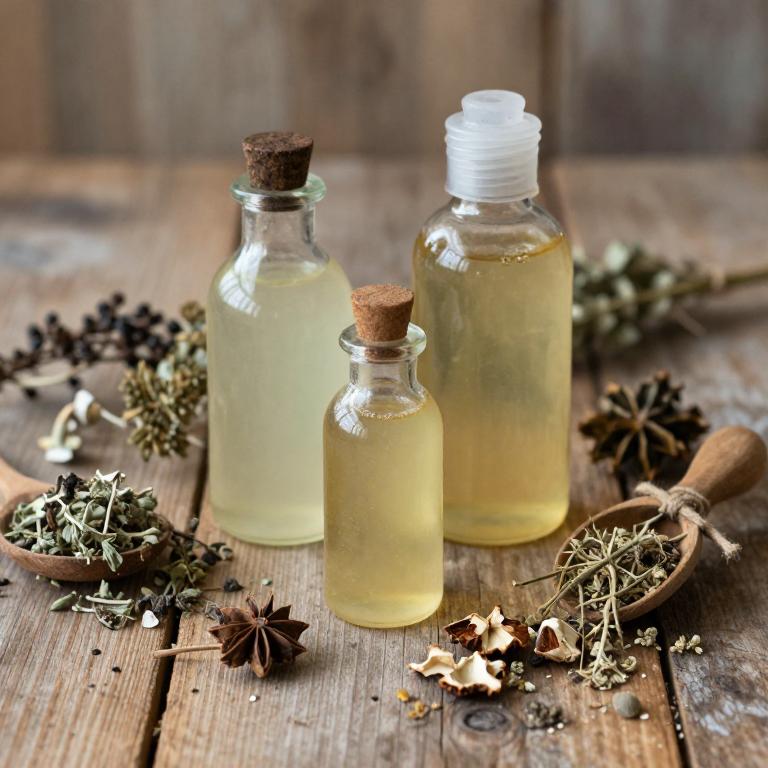
Rosa canina herbal lotions, derived from the hips of the rose plant, are traditionally used to support joint health and reduce inflammation.
These natural remedies are often recommended for individuals suffering from frozen shoulder due to their anti-inflammatory and soothing properties. The lotion helps improve circulation and may alleviate stiffness and pain associated with the condition. Its gentle formulation makes it suitable for topical application without causing irritation.
Incorporating rosa canina into a holistic treatment plan can complement other therapies for better relief and mobility restoration.
4. St. john's wort (Hypericum perforatum)
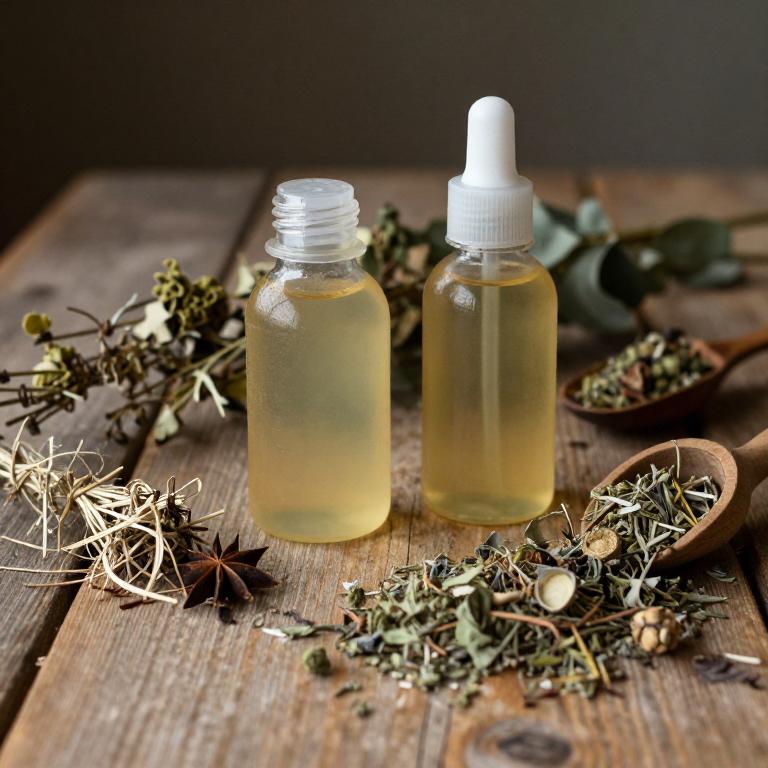
Hypericum perforatum, commonly known as St. John's Wort, is a herbal plant often used in the form of lotions for its potential anti-inflammatory and analgesic properties.
These herbal lotions may help alleviate the pain and stiffness associated with frozen shoulder by promoting local circulation and reducing inflammation in the affected joints. While some studies suggest that topical applications of St. John's Wort may offer mild relief, more research is needed to confirm its efficacy for this specific condition. It is important to consult with a healthcare professional before using St. John's Wort lotion, as it may interact with certain medications.
As a complementary therapy, it can be used alongside conventional treatments to support overall recovery from frozen shoulder.
5. Stinging nettle (Urtica dioica)

Urtica dioica, commonly known as stinging nettle, has been traditionally used in herbal medicine for its anti-inflammatory and analgesic properties.
When formulated into a lotion, it can provide soothing relief for the symptoms of frozen shoulder, such as pain and stiffness. The active compounds in stinging nettle, including histamine and formic acid, may help reduce inflammation and improve circulation in the affected area. Applying the lotion topically can offer a natural alternative for those seeking non-pharmacological treatment options.
However, it is advisable to consult a healthcare professional before using any herbal remedy, especially for chronic conditions like frozen shoulder.
6. Chaste tree (Vitex agnus-castus)
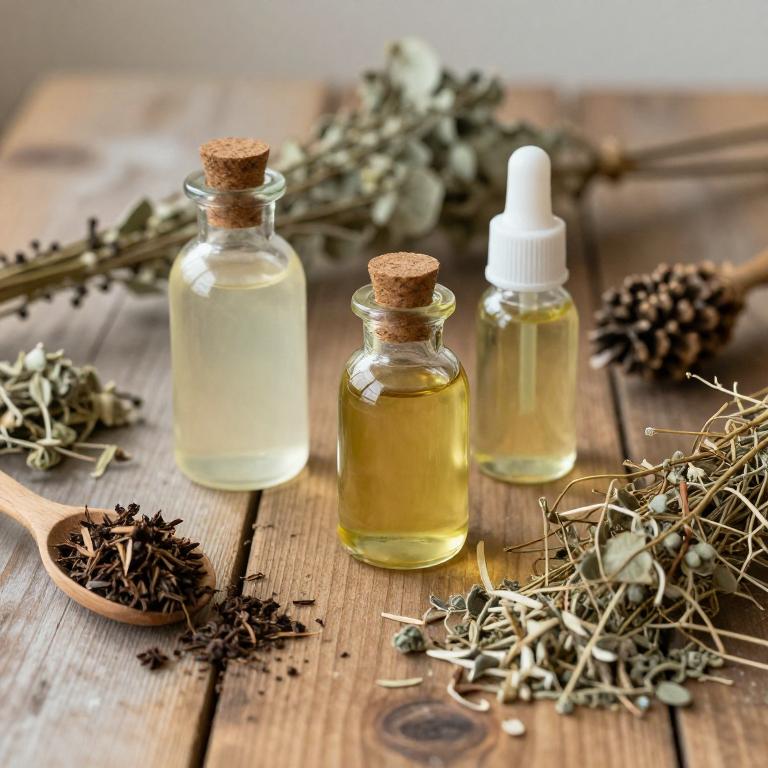
Vitex agnus-castus, commonly known as chasteberry, is a herbal remedy often used in the form of a lotion for managing symptoms of frozen shoulder.
These lotions are typically infused with essential oils and extracts from the Vitex plant, which are believed to have anti-inflammatory and analgesic properties. When applied topically, the lotion may help reduce stiffness and pain associated with frozen shoulder by promoting circulation and muscle relaxation. While not a cure, vitex agnus-castus herbal lotions can be a complementary therapy to support traditional treatments like physical therapy.
It is important to consult with a healthcare provider before using any herbal product, especially if you have existing medical conditions or are taking other medications.
7. Common grape (Vitis vinifera)
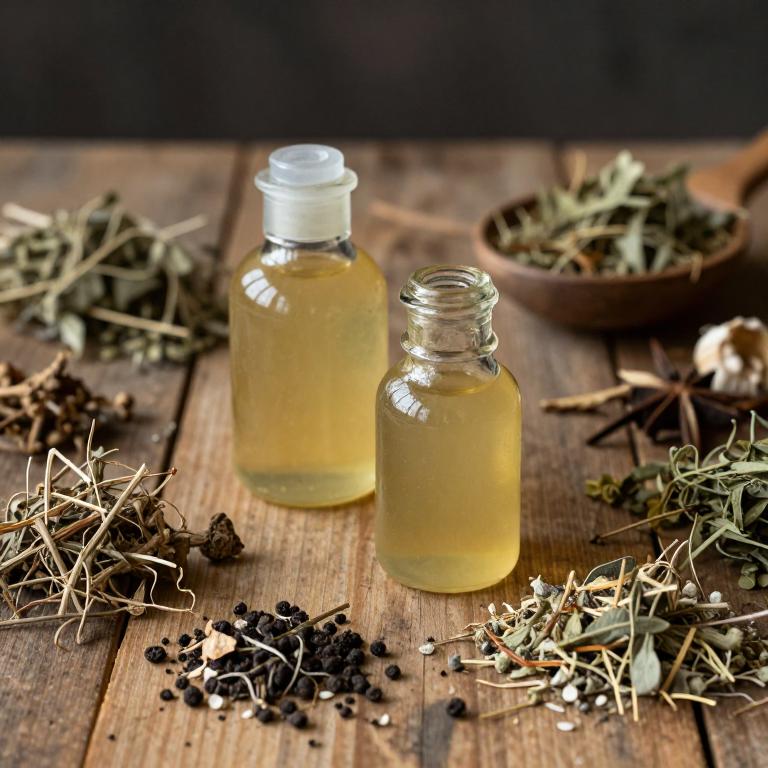
Vitis vinifera, commonly known as the grapevine, has been traditionally used in herbal medicine for its anti-inflammatory and analgesic properties.
Herbal lotions infused with Vitis vinifera extracts are believed to provide natural relief for symptoms of frozen shoulder by reducing inflammation and improving circulation in the affected area. These lotions typically contain a blend of grapevine leaves and other soothing herbs, which work synergistically to alleviate stiffness and pain. When applied topically, they can offer a gentle, non-invasive option for managing the discomfort associated with frozen shoulder.
However, it is advisable to consult a healthcare professional before using such herbal treatments, especially if you have underlying health conditions or are taking other medications.
8. Yarrow (Achillea millefolium)
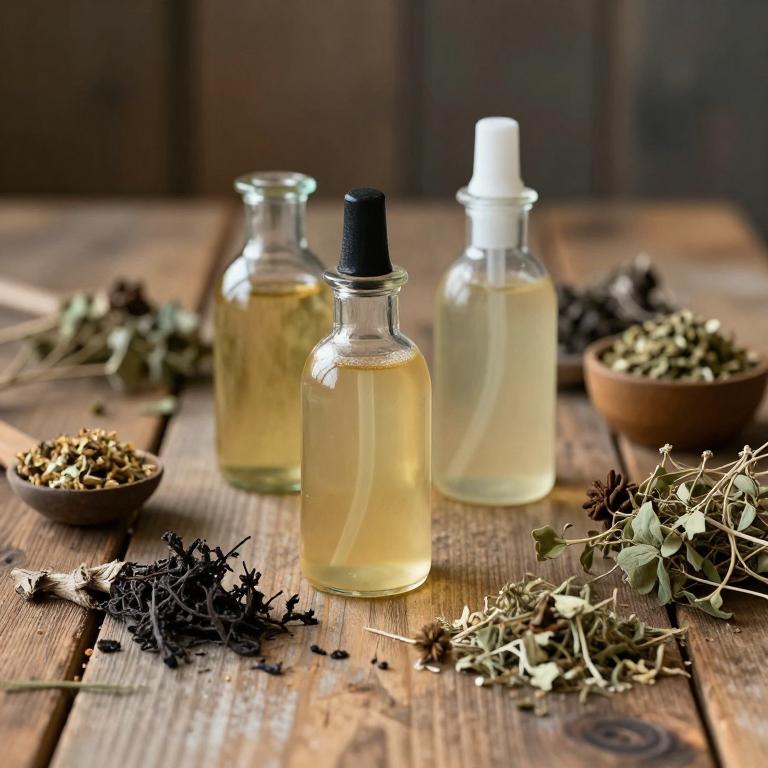
Achillea millefolium, commonly known as yarrow, has been traditionally used in herbal medicine for its anti-inflammatory and analgesic properties.
When formulated into a herbal lotion, it may offer potential relief for individuals suffering from frozen shoulder by reducing inflammation and soothing muscle tension. The essential oils and phytochemicals in yarrow can help improve circulation and alleviate discomfort associated with restricted joint movement. However, while some anecdotal evidence suggests its efficacy, it is important to consult with a healthcare professional before using it as a complementary therapy.
As with any natural remedy, individual responses may vary, and it should not replace conventional medical treatments for frozen shoulder.
9. Ginger (Zingiber officinale)

Zingiber officinale, commonly known as ginger, has been traditionally used for its anti-inflammatory and analgesic properties, making it a valuable ingredient in herbal lotions for frozen shoulder.
These lotions often combine ground ginger with essential oils and carrier oils to create a soothing topical application that can help reduce stiffness and pain associated with frozen shoulder. The warming effect of ginger stimulates blood circulation, which may aid in the recovery process by delivering more oxygen and nutrients to the affected area. Regular application of ginger-based herbal lotions can complement other therapies such as physical therapy and stretching exercises.
However, it is important to consult a healthcare professional before using these lotions, especially if there are underlying skin conditions or allergies.
10. Turmeric (Curcuma longa)
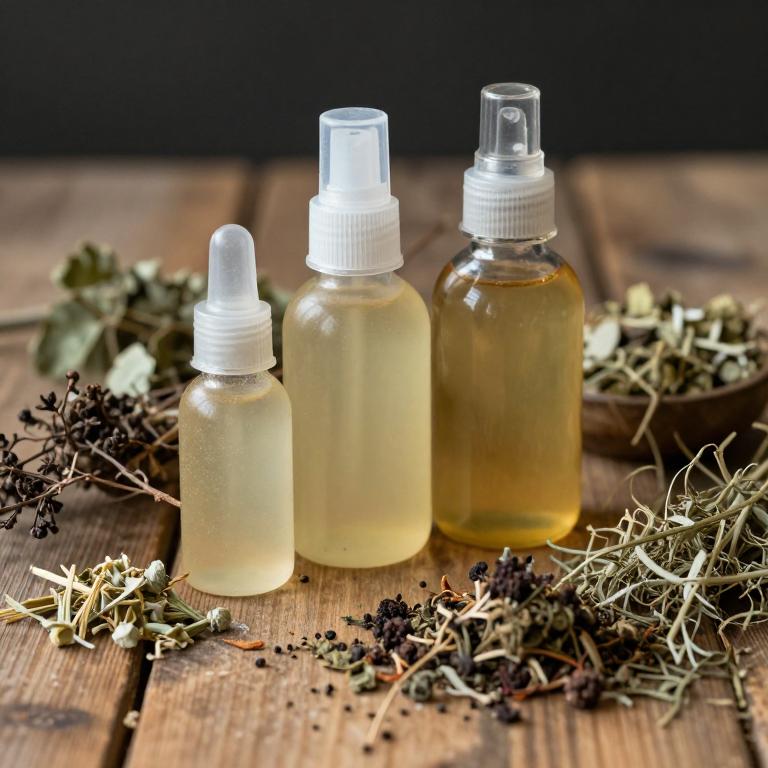
Curcuma longa, commonly known as turmeric, contains curcumin, a compound with potent anti-inflammatory and analgesic properties, making it a popular ingredient in herbal lotions for frozen shoulder.
These lotions are often used to alleviate pain and reduce inflammation associated with the condition, which is characterized by stiffness and limited range of motion in the shoulder joint. The topical application of turmeric-based lotions allows for targeted relief without the systemic side effects of oral medications. Many users report improved mobility and reduced discomfort after consistent use of these natural remedies.
However, it is advisable to consult a healthcare professional before using turmeric lotions, especially if there are existing skin sensitivities or underlying medical conditions.